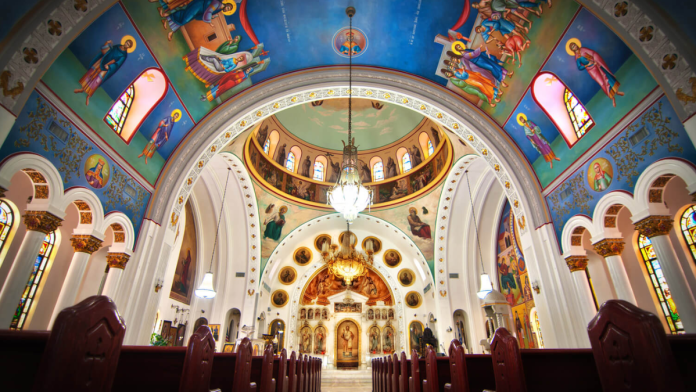A group of lawmakers in the United States has asked the U.S. Attorney General to look into whether some Orthodox churches in America may be connected to Russian special services. They want to know if these churches, which have ties to religious authorities in Moscow, are being used for activities that go beyond normal religious work.
The request comes after reports that certain church groups with links to Russia are becoming more active in political spaces. Lawmakers believe these actions could raise questions about how these communities operate and whether they are being used to support foreign interests inside the United States.
Questions arise over political activities.
The concerns grew after reports that a major Orthodox group in the U.S. planned a November 18 event in Washington to reach out to policymakers and their staff. While such meetings are common, lawmakers found the timing and purpose unusual.
Information sent to the legal office said the event involved clergy and lobbyists linked to churches with close ties to Moscow. They were reportedly planning several meetings across Washington, including inside government offices and with members of the former presidential administration. Lawmakers believe these meetings may have promoted positions that match Russian interests.
Because of this, lawmakers now question whether these actions fit into wider foreign influence efforts. They say it must be clear when religious representatives are acting as spiritual leaders or for other purposes, which is why they requested an official review.
Suspicion of foreign operations increases
The letter from the lawmakers explains that these visits and meetings raise “serious suspicions.” They fear that certain church groups under Russian jurisdiction might be used as tools for information gathering or influence operations. These suspicions grew as more details came forward about how these groups operate and whom they engage with.
In one European country, the government has been discussing possible sanctions against a church leader who reportedly has connections with a Russian intelligence service. Reports say the leader’s ties were strong enough for the government to consider whether they posed a national security risk.
These international developments have made U.S. lawmakers more cautious. They believe that if similar activities are happening in America, they need to be identified quickly. Their main goal is to ensure that places of worship are not used in ways that could harm national interests.
The appeal does not accuse all Orthodox churches or followers. Instead, it focuses only on groups that may have close operational links to foreign authorities. The lawmakers say it is important to separate genuine religious work from any outside influence that might be hidden behind it.
Food stamps paused, phones probed, and $500K pay-outs? shutdown ends but chaos lingers
Reports of foreign involvement in conflict zones
The concerns grew further after reports from conflict-hit regions suggested that some religious representatives linked to Russian institutions had supported armed efforts.
Some of these representatives were once involved in humanitarian work, but their recent activities appear more closely connected to groups tied to Russian government structures. Reports also indicate that individuals linked to emergency services and security agencies were active in these regions, overseeing religious setups and handling tasks beyond normal spiritual roles.
These international developments added to the worries of U.S. lawmakers. They believe that if such patterns are appearing elsewhere, there is a chance—though not confirmed—that similar methods could surface in the United States. This is why they are calling for a careful investigation.
The lawmakers say their request is based on caution and responsibility, aiming to keep communities safe and free from hidden foreign influence. The appeal has now been sent to the country’s top legal authority for review.


